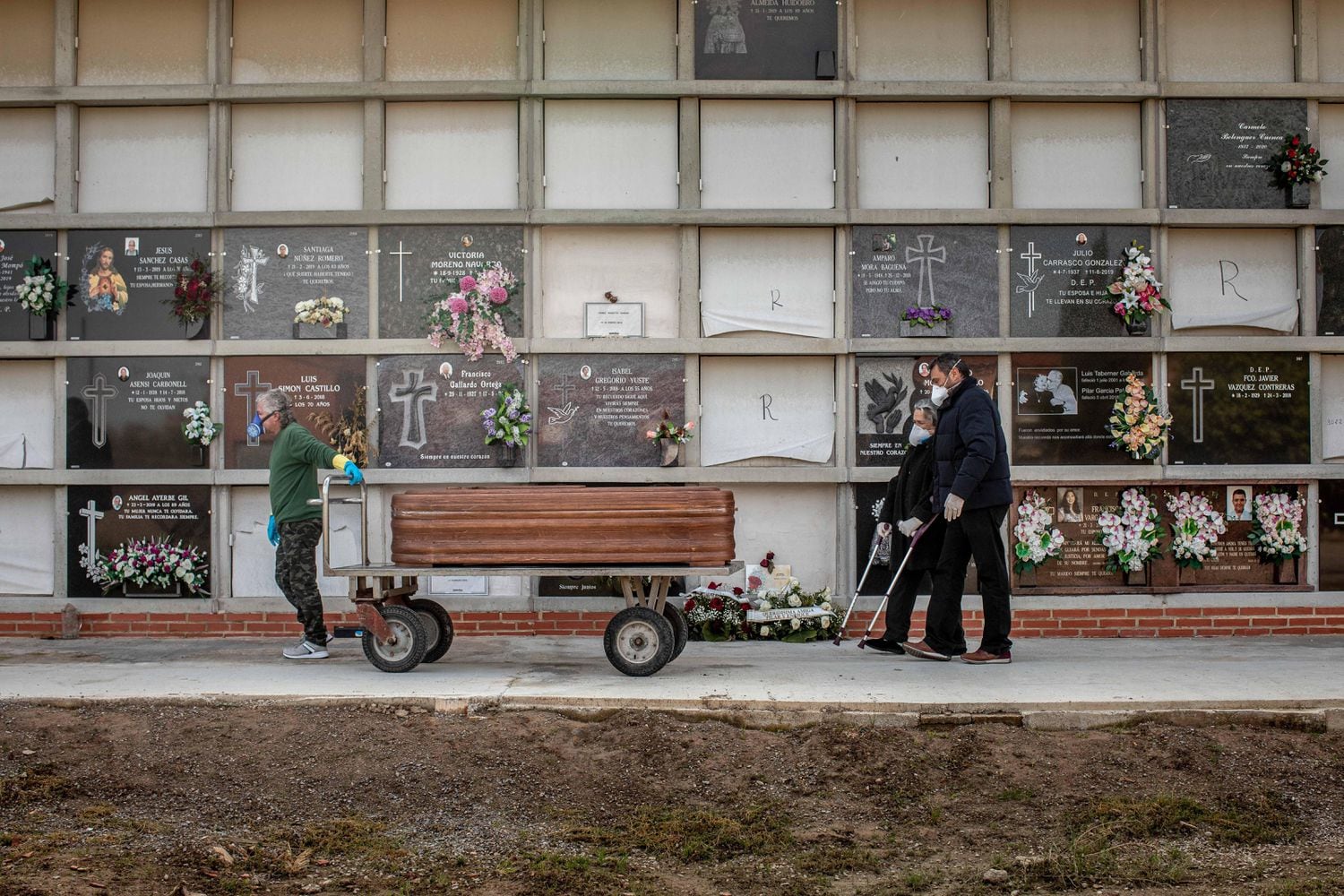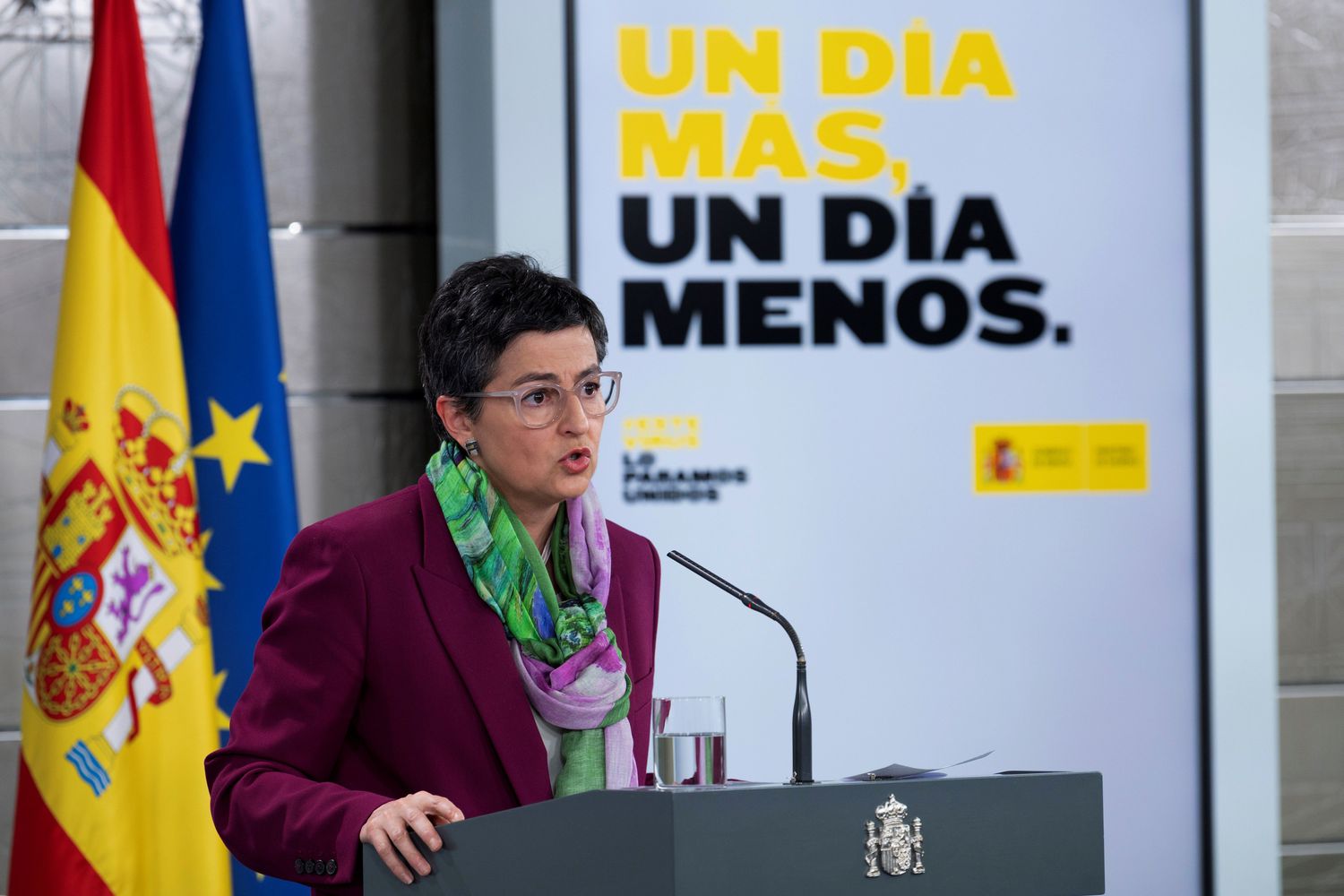Daily coronavirus deaths continue downward trend in Spain, with 674 in the last 24 hours

A coronavirus victim is laid to rest in Valencia, accompanied by family members.BIEL ALIÑO / EFE
Spanish PM Pedro Sánchez has called on regions to provide lists of accommodation where people who have been infected but are asymptomatic could be housed
The downward trend of daily deaths from the coronavirus continued on Sunday, with the latest number falling to 674, according to official figures supplied by the Health Ministry. This marks a fall of 135 compared to Saturday, which saw 809. Sunday’s figure is the lowest seen in 10 days. The highest total so far was reported on April 2, with 950 fatalities from Covid-19 in a 24-hour period.
The total number of deaths in Spain from the coronavirus now stands at 12,418, with 130,759 confirmed infections, a rise of 6,023 in the last 24 hours. New infections grew just 5% in the last day, however, which is the lowest rise since the health crisis began.
Speaking at the daily government press conference on the coronavirus, María José Sierra, from the Health Ministry’s Coordination Center for Health Alerts, pointed to the 30,080 patients who have recovered from the disease and have been discharged from hospital – 29% of the total. “In most of the regions, the number of people who are hospitalized has fallen compared to previous days,” she explained.
However, since the crisis began, there has been an underreporting of figures on Sundays and Mondays, meaning that today’s totals should be viewed with caution.
Regional response
On Sunday, Prime Minister Sánchez held one of his now weekly video conference calls with the premiers of Spain’s 17 regions. The Socialist Party (PSOE) chief discussed the progress of the virus throughout the country, and the measures that are on the table to combat its spread. This includes a new extension of the state of alarm and confinement measures for another two weeks, until April 26. This measure will have to be approved by Congress on April 9, two days before the current period expires.

Sánchez also called on regional premieres to prepare a list of public and private infrastructures where people who are confirmed to have the coronavirus, but have no symptoms, can be housed. Currently, most testing in Spain is being carried out on people with clear symptoms.
The prime minister told regional leaders that a million tests will be arriving in the regions in the coming days, and asked for a list of hotels, hostels and sports halls in each region, as well as the economic cost of each one for housing people confirmed to have the coronavirus.
During the meeting, the premier of Catalonia, hardline separatist Quim Torra, was highly critical of the government’s response, and demanded that the regional powers that were suspended under the current state of alarm – including control of the health system – be given back to the Catalan authorities, given the “lack of coordination” with the central government in Madrid.
Aid for Madrid
The Madrid regional government will today request an aid fund of €2 billion from the central government, to help pay for the “health and economic cost” of the current crisis, the deputy premier, Ignacio Aguado, announced. Madrid has been the Spanish region hardest hit by the coronavirus so far, with nearly half of total deaths. Speaking to radio station RNE, Aguado said that the central government has to take into account “that we are in an exceptional situation where we have to be able to spend money.”
New testing kits
Speaking on Spanish TV channel La Sexta last night, Spain’s foreign affairs minister, Arancha González Laya, explained that four approved Spanish companies were currently manufacturing 245,000 coronavirus testing kits. “In the coming weeks there are four more companies that will be approved,” she explained. “We have a significant capacity in Spain already to produce these diagnostic kits, which will allow us to know who is infected.”

